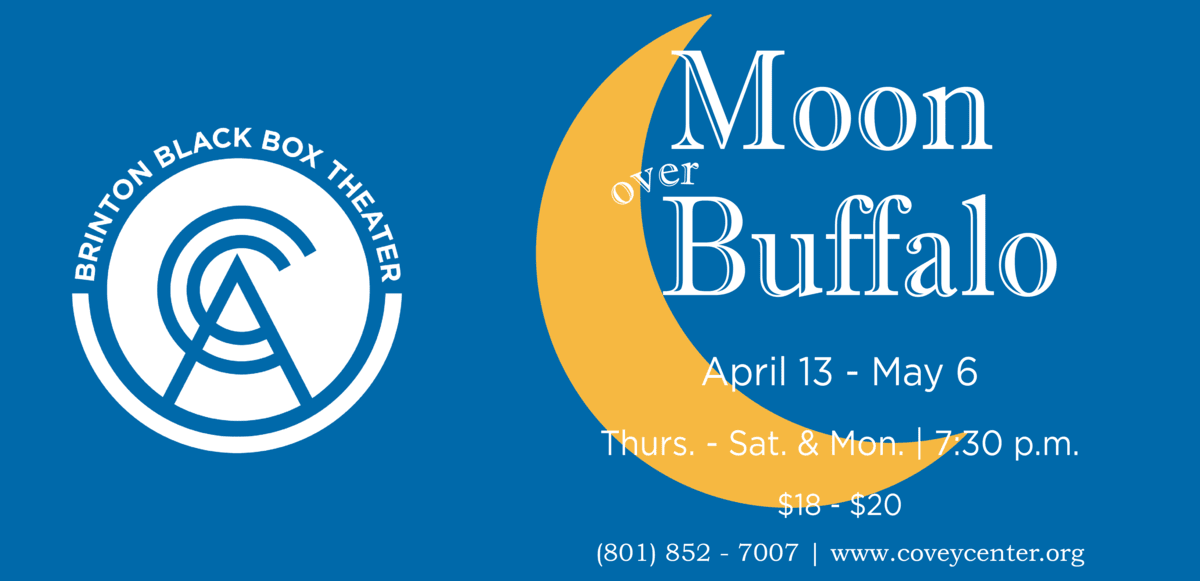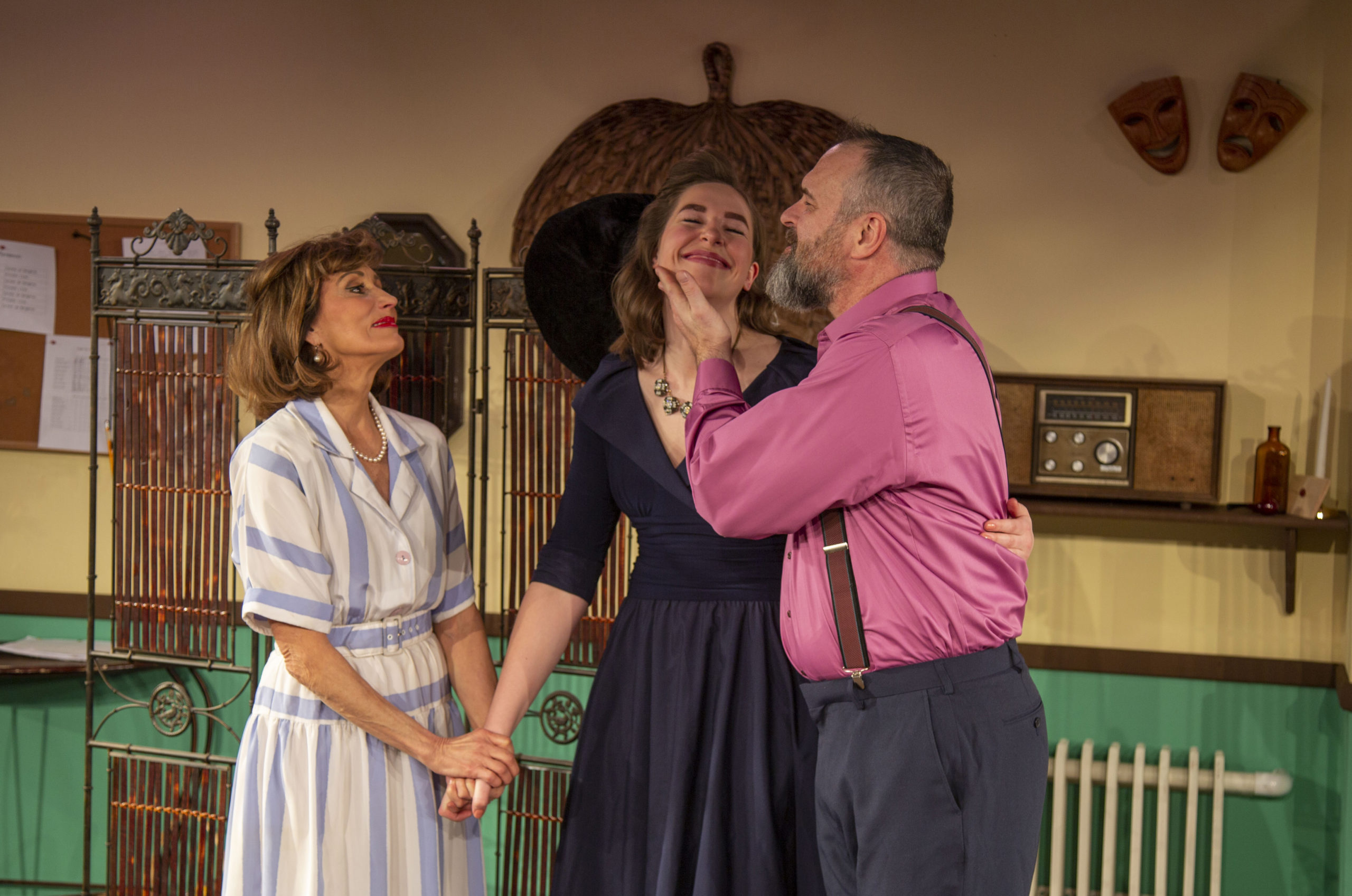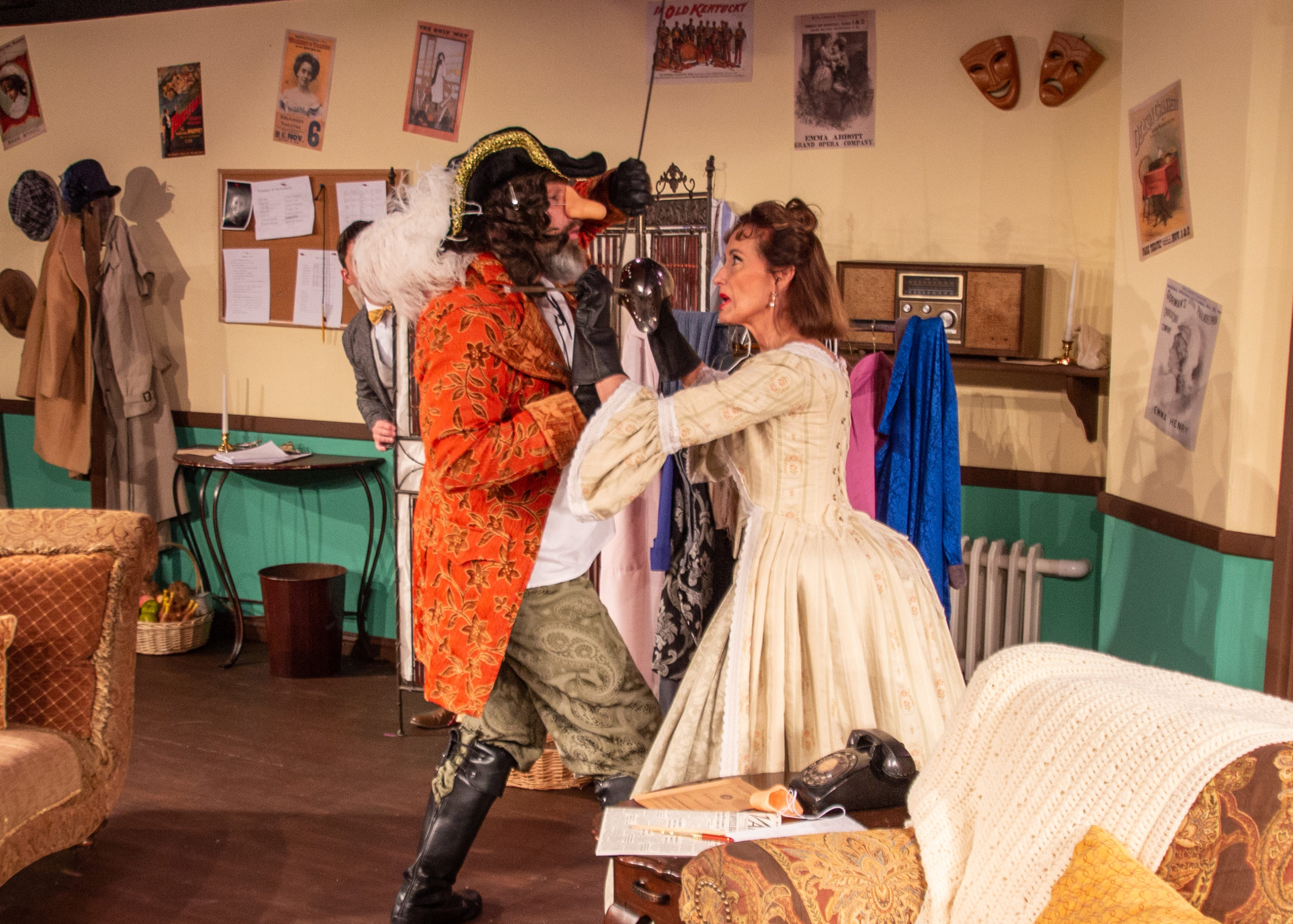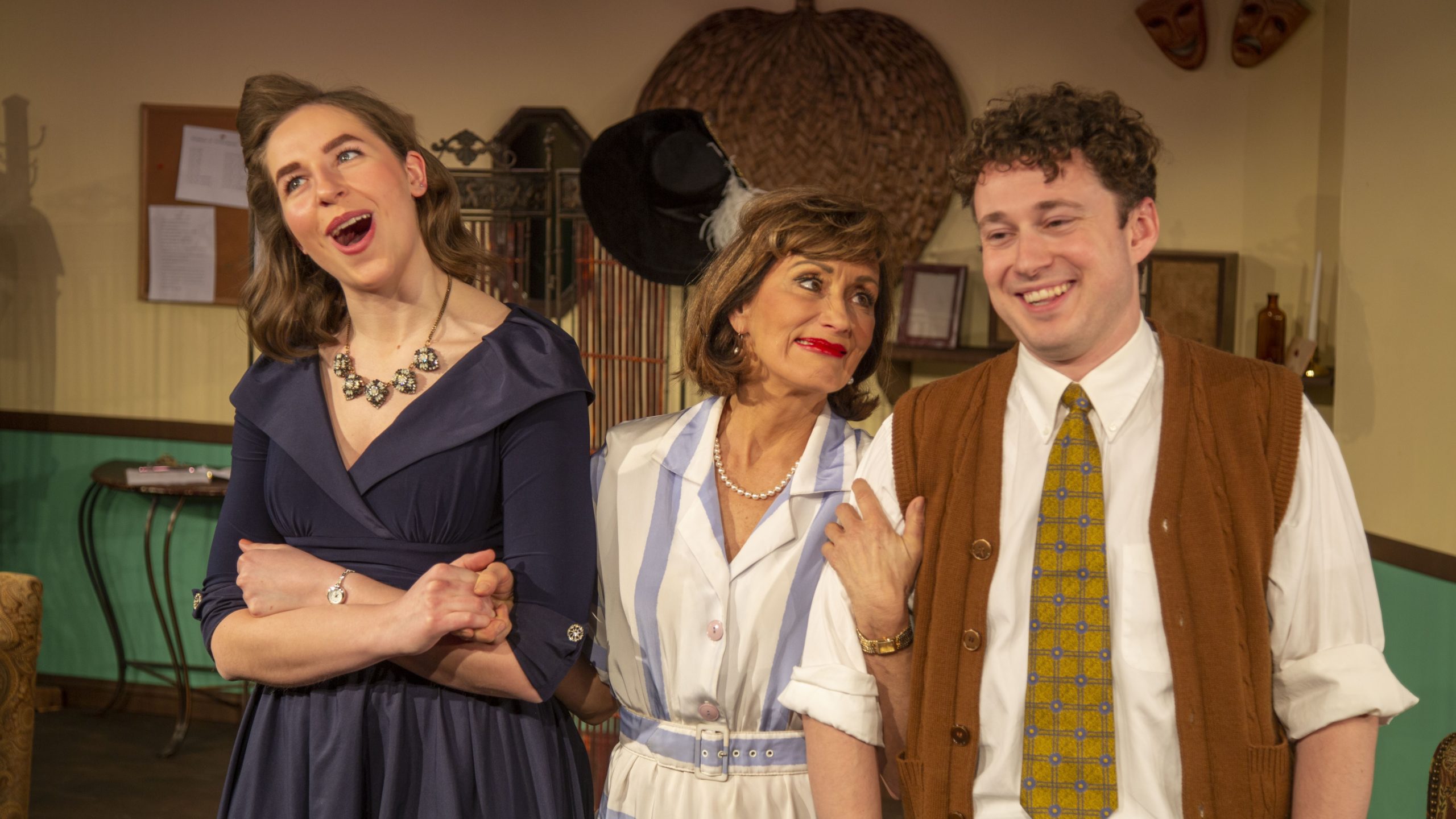PROVO — Beginning writers are frequently told, “Write what you know.” Because of that piece of advice, playwrights often write plays about the theatre. Audiences like the peak behind the curtain, and actors like showing the ups and downs of stage life. And when a play humorously shows how things can go wrong in a live performance, audiences will love it and inevitably schlepp to the box office to buy a ticket. Shakespeare knew it. Modern playwrights know it, as demonstrated by the popularity of Noises Off! and The Play That Goes Wrong. And the Covey Center knows it, with their latest production: Moon Over Buffalo.

In Moon Over Buffalo, the aging performing couple George and Charlotte Hay are performing in Cyrano de Bergerac and Private Lives in repertory on tour in 1953. While in Buffalo, New York, their daughter — Rosalind, who has escaped the life of show business for a career in advertising — comes to visit them so she can introduce her fiancé, Howard, to her parents. Unfortunately for Rosalind, the company manager is Paul, her ex-fiancé. Adding to the drama is the fact that George has impregnated Eileen, a young member of the cast. All these interpersonal conflicts crisscross and then spill onto the stage when there is confusion about which play to perform at a matinee.
Ben Cummins directs this production expertly, thanks to his knack for the careful comedic timing that farce requires. Farce also needs a brisk pace, and Moon Over Buffalo easily meets this demand. I also appreciated how natural the movement felt as the actors milled around the greenroom set. The door slams and the zany moments felt like they organically grew out of the events occurring in the space. To show strange events (like Paul getting George dressed while the latter is drunk) as being natural and inevitable is quite an accomplishment for a director.
Thanks to Ben Cummins’s direction, the actors were excellent at walking the fine line between the energy and exaggeration that farce requires and the subtlety needed to perform in a small black box. As George Hay, Matthieu C. Kohl was the only actor who struggled to find this balance; his performance was sometimes loud and big enough for a theatre that is 10 times larger. This was especially noticeable while George was drunk, or when the character is excited about the prospect of meeting Frank Capra. When Kohl toned down his performance, he was wonderful, especially in the scenes with his on-stage wife, Margo Watson in the role of Charlotte.

Watson is adroit in performing the show’s multifaceted role. During the course of Moon Over Buffalo, Charlotte shows moments of tenderness, rage, excitement, and more — and Watson had me enjoying all of it. Watson’s funniest moments were in her interactions with Howard (played by Doug Kaufman): first she thought he was a fan, and then she thought he was Frank Capra. The instant change from patronizing to schmoozing still brings as smile to my face.
All of the supporting cast is wonderful. Kaufman brings a boyish charm to the show, and his character was so convincing as a nervous and starstruck young man that I was looking for the fop sweat. As Paul, Tanner Frederiksen plays the most stabilizing character, and I appreciated how believable he was while dealing with actors and their problems. Alice Ellsworth’s character experienced the most change in the show, and it was fun to see Rosalind fret about her parents’ behavior, or convince herself to return to the stage.
Despite the strong directing and performances, the production gets bogged down by its script. Overrated playwright Ken Ludwig brings nothing special to the genre of the backstage farce, and his language is creaky and artificial. For example, when Rosalind tells Paul that she left the theatre for a “real life,” he replies, “This isn’t a life? I’m breathing.” At times, the dated humor stoops to the level of a bad vaudeville routine, and I could see many jokes coming from a mile away (“Grandma, can I get you your hearing aid?” “No, I’m not in the mood for lemonade”). The exposition is especially clunky because it mostly consists of characters telling each other things they already know in stilted, awkward conversations. Apart from a few references to the 1940s and 1950s (e.g., Ed Sullivan), Ludwig’s script — which debuted in 1995 — could have been written in 1935.

Among the technical elements, Skye Cummins‘s costumes were perfect for the period. The bow ties on the men, and the period dresses (especially Charlotte’s striped housedress) were inescapable reminders of the show’s setting. Spencer Powell‘s lighting design enhanced the mood, and I particularly liked the lighting behind the stage left doors, which gave the illusion that there were unseen backstage rooms that the characters could spend time in.
Moon Over Buffalo is an unpretentious show that just wants to make its audience laugh. On those terms, the Covey Center’s production works. It takes great actors and a smart director to make an unremarkable script play as well as Moon Over Buffalo does at the Covey Center. Audience members that have enjoyed other backstage farces will greatly enjoy themselves at Moon Over Buffalo.
[box]Moon Over Buffalo plays Thursdays, Fridays, Saturdays, and Mondays at 7:30 PM through May 6 in the Brinton Black Box at the Covey Center for the Arts (425 West Center Street, Provo). Tickets are $18-20. For more information, visit https://www.provo.org/community/covey-center-for-the-arts.[/box]
